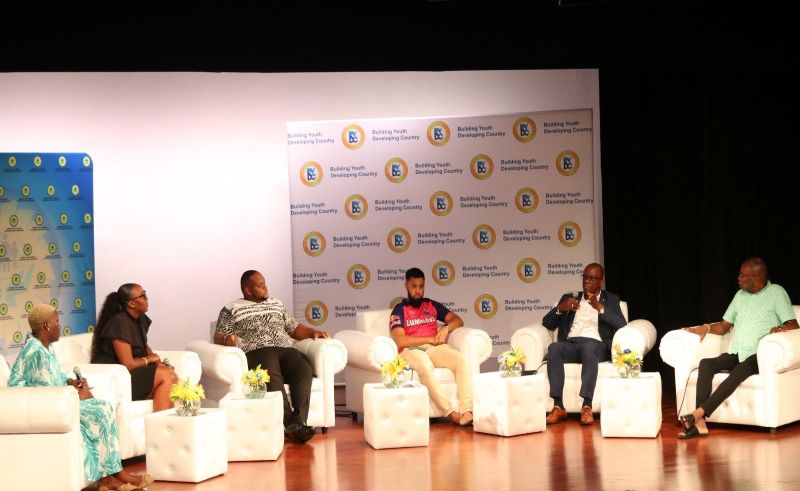
A more unified and strategic approach to developing sports talent in Barbados has been called for by some stakeholders in Barbados’ sports sector.
The appeal came recently during a panel discussion at the Daphne Joseph-Hackett Theatre, Queen’s Park, St. Michael, which featured Minister of Youth, Sports and Community Empowerment, Charles Griffith, Physical Education teacher, Nikita Wickham and prominent sports activist Taahir Bulbulia.
The panellists highlighted the critical need for an integrated Long-Term Athlete Development (LTAD) Model, an international framework that strategises training, competition, and recovery depending on the participants stage in their athletic development.
The LTAD model that begins at the primary school level and extends through secondary education, national federations, and beyond, was highlighted by Physical Education teacher Nikita Wickham who underscored the importance of this model, stating: “Once we get models in place that are cohesive and everyone knows their roles, we can ensure our athletes are developed effectively and consistently. This will help us retain talent and foster success on the global stage.”
Minister Griffith, in endorsing these sentiments, emphasised the need for early talent identification and proper coaching to nurture world-class athletes. “If we are serious about producing world-class athletes, we must match them with world-class coaches from an early age. We need to be proactive in identifying and nurturing talent across all sports, not just track and field,” he said.
Suggesting that it could not be business as usual, he said: “We know we need to look at a four-year cycle, and… cherry pick those persons and maybe teams who we believe can do podium or do national records or pb’s [personal best] going forward. It can’t be a situation where it is anyone getting funding.”
Despite the challenges, the panel was optimistic about the future of sports in Barbados. Mr. Bulbulia, a sports activist and radio host, spoke passionately about the potential for sports to become a significant pillar of the Barbadian economy. He stressed: “We need to develop clear pathways for our athletes, from primary school to tertiary education and beyond. If we do this, sports can contribute not only to the health and culture of our nation but also to our economy.”
Mr. Bulbulia also addressed the economic realities, acknowledging that while Barbados has a small economy, innovative approaches could help integrate sports more effectively into the economic framework. “Cricket, for example, brings significant revenue to the country. We need to explore similar opportunities in other sports and make sports a sustainable industry,” he added. The discussion concluded with a call to action for greater collaboration among all stakeholders in the sports community, including schools, the National Sports Council, government ministries, and national federations.
